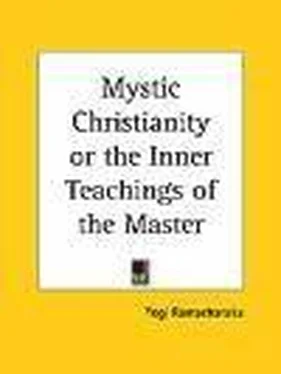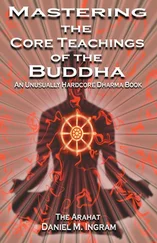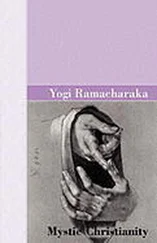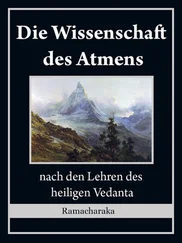These words, falling from the lips of a man so eminent in the staid conservative ranks of the Church of England, must attract the attention of every earnest seeker after the Truth of Christian Doctrine. If such a man, reared in such an environment, could find himself able to bear such eloquent testimony to the truth of a philosophy usually deemed foreign to his accepted creed, what might we not expect from a Church liberated from the narrow formal bounds of orthodoxy, and once more free to consider, learn and teach those noble doctrines originally held and taught by the Early Fathers of the Church of Christ?
While the majority of modern Christians bitterly oppose the idea that the doctrine of Metempsychosis ever formed any part of the Christian Doctrine, and prefer to regard it as a "heathenish" teaching, still the fact remains that the careful and unprejudiced student will find indisputable evidence in the writings of the Early Christian Fathers pointing surely to the conclusion that the doctrine of Metempsychosis was believed and taught in the Inner Circle of the Early Church.
The doctrine unquestionably formed a part of the Christian Mysteries, and has faded into comparative obscurity with the decay of spirituality in the Church, until now the average churchman no longer holds to it, and in fact regards as barbarous and heathenish that part of the teachings originally imparted and taught by the Early Fathers of the Church-the Saints and Leaders.
The Early Christians were somewhat divided in their beliefs concerning the details of Re-birth. One sect or body held to the idea that the soul of man was eternal, coming from the Father. Also that there were many degrees and kinds of souls, some of which have never incarnated in human bodies but which are living on many planes of life unknown to us, passing from plane to plane, world to world. This sect held that some of these souls had chosen to experiment with life on the physical plane, and were now passing through the various stages of the physical-plane life, with all of its pains and sorrows, being held by the Law of Re-birth until a full experience had been gained, when they would pass out of the circle of influence of the physical plane, and return to their original freedom.
Another sect held to the more scientific occult form of the gradual evolution of the soul, by repeated rebirth, on the physical plane, from Lower to Higher, as we have set forth in our lessons on "Gnani Yoga." The difference in the teachings arose from the different conceptions of the great leaders, some being influenced by the Jewish Occult Teachings which held to the first above mentioned doctrine, while the second school held to the doctrine taught by the Greek Mystics and the Hindu Occultists. And each interpreted the Inner Teachings by the light of his previous affiliations.
And so, some of the early writings speak of "pre-existence," while others speak of repeated "rebirth." But the underlying principle is the same, and in a sense they were both right, as the advanced occultists know full well. The fundamental principle of both conceptions is that the soul comes forth as an emanation from the Father in the shape of Spirit; that the Spirit becomes plunged in the confining sheaths of Matter, and is then known as "a soul," losing for a time its pristine purity; that the soul passes on through rebirth, from lower to higher, gaining fresh experiences at each incarnation; that the advancing soul passes from world to world, returning at last to its home laden with the varied experiences of life and becomes once more pure Spirit.
The early Christian Fathers became involved in a bitter controversy with the Greek and Roman philosophers, over the conception held by some of the latter concerning the absurd doctrine of the transmigration of the human soul into the body of an animal. The Fathers of the Church fought this erroneous teaching with great energy, their arguments bringing out forcibly the distinction between the true occult teachings and this erroneous and degenerate perversion in the doctrines of transmigration into animal bodies. This conflict caused a vigorous denunciation of the teachings of the Pythagorean and Platonic schools, which held to the perverted doctrine that a human soul could degenerate into the state of the animal.
Among other passages quoted by Origen and Jerome to prove the pre-existence of the soul was that from Jeremiah (1:5): "Before thou comest from the womb I sanctified thee and I ordained thee a prophet." The early writers held that this passage confirmed their particular views regarding the pre-existence of the soul and the possession of certain characteristics and qualities acquired during previous birth, for, they argued, it would be injustice that a man, before birth, be endowed with uncarnal qualities; and that such qualities and ability could justly be the result only of best work and action. They also dwelt upon the prophecy of the return of Elijah, in Malachi 4:5. And also upon the (uncanonical) book "The Wisdom of Solomon," in which Solomon says: "I was a witty child, and had a good Spirit. Yea, rather, being good, I came into a body undefiled."
They also quoted from Josephus, in his book styled "De Bello Judico," in which the eminent Jewish writer says: "They say that all souls are incorruptible; but that the souls of good men are only removed into other bodies-but that the souls of bad men are subject to eternal punishment." They also quoted from Josephus, regarding the Jewish belief in Rebirth as evidenced by the recital of the instance in which, at the siege of the fortress of Jotapota, he sought the shelter of a cave in which were a number of soldiers, who discussed the advisability of committing suicide for the purpose of avoiding being taken prisoners by the Romans. Josephus remonstrated with them as follows:
"Do ye not remember that all pure spirits who are in conformity with the divine dispensation live on in the loveliest of heavenly places, and in the course of time they are sent down to inhabit sinless bodies; but the souls of those who have committed self-destruction are doomed to a region in the darkness of the underworld?"
Recent writers hold that this shows that he accepted the doctrine of Re-birth himself, and also as showing that it must have been familiar to the Jewish soldiery.
There seems to be no doubt regarding the familiarity of the Jewish people of that time with the general teachings regarding Metempsychosis. Philo positively states the doctrine as forming part of the teachings of the Jewish Alexandrian school. And again the question asked Jesus regarding the "sin of the man born blind" shows how familiar the people were with the general doctrine.
And so, the teachings of Jesus on that point did not need to be particularly emphasized to the common people, He reserving this instruction on the inner teachings regarding the details of Re-birth for his chosen disciples. But still the subject is mentioned in a number of places in the New Testament, as we shall see.
Jesus stated positively that John the Baptist was "Elias," whose return had been predicted by Malachi (4:5). Jesus stated this twice, positively, i.e., "This is Elijah that is to come" (_Matt. 11:14_); and again, "But I say unto you that Elijah is come already, but they knew him not, but did unto him whatsoever they would… Then understood the disciples that he spoke unto them of John the Baptist." (_Matt. 17:12-13._) The Mystics point out that Jesus saw clearly the fact that John was Elijah re-incarnated, although John had denied this fact, owing to his lack of memory of his past incarnation. Jesus the Master saw clearly that which John the Forerunner had failed to perceive concerning himself. The plainly perceptible characteristics of Elijah reappearing in John bear out the twice-repeated, positive assertion of the Master that John the Baptist was the re-incarnated Elijah.
Читать дальше












